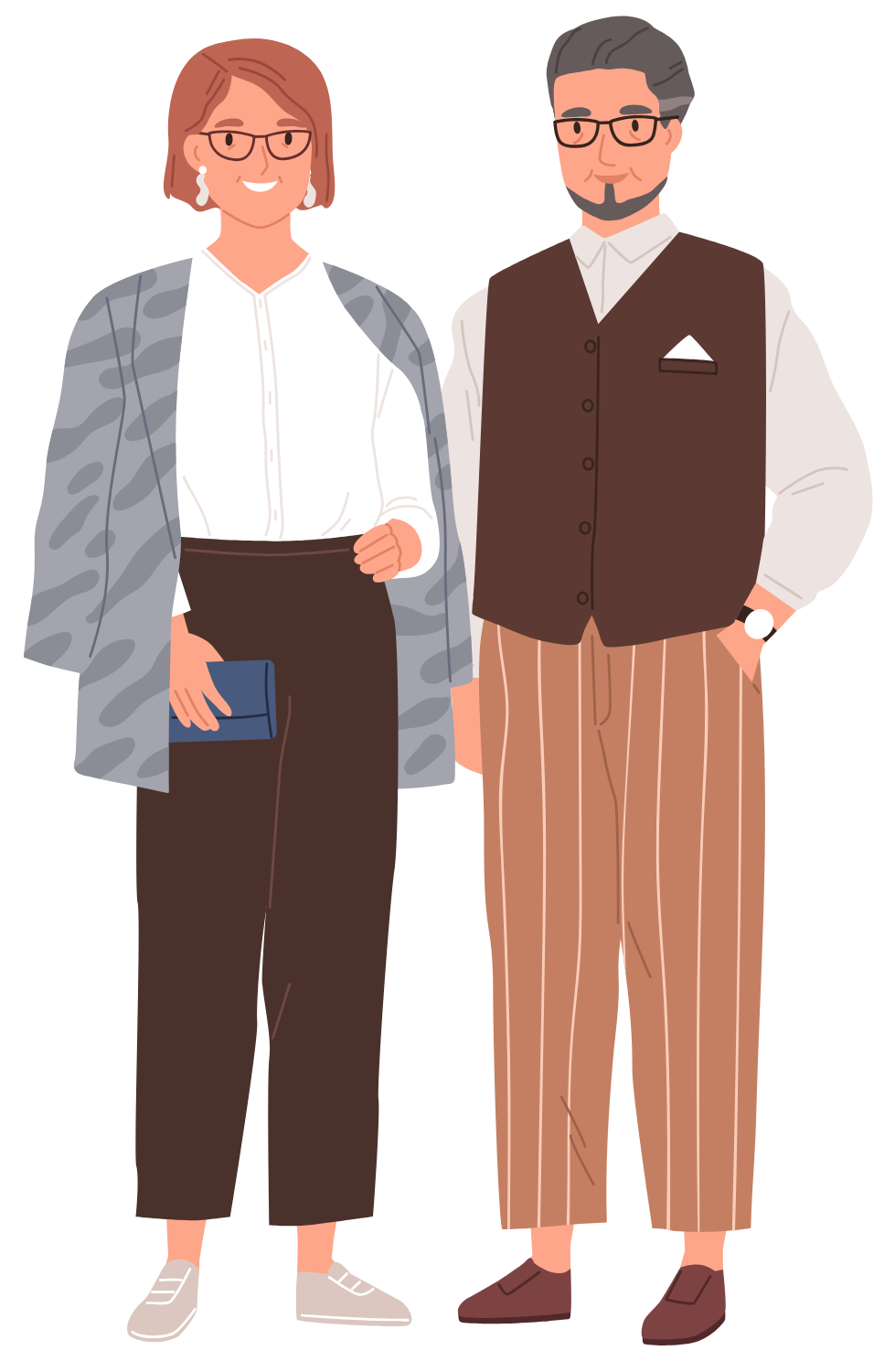Therapy & Coaching
Are You Ready to Embrace Love on the Autism Spectrum?
Is Autism, ADHD, or Complex Trauma part of your relationship?
You’re not broken—you’re wired differently. And you deserve support that honors how you both connect, cope, and communicate.
If traditional therapy hasn’t worked, it’s not your fault. Most approaches aren’t built for neurodivergent nervous systems or emotional mismatches in relationships.
That’s why Love on the Autism Spectrum exists.
This is a space for neurodivergent adults and couples to explore connection, identity, and intimacy—without pressure, shame, or blame.
You’re not here to be fixed. You’re here to feel seen, supported, and safe to be yourself.



How We Can Help
Are you or your partner neurodiverse?
If this is you, or you and your spouse, we will support you in rewriting your challenging communication patterns.
Challenge 1:
Do you struggle with the loss of communication and connection in your neurodiverse couple’s relationship?
Challenge 2:
Are you the neurotypical partner who is tired of feeling lonely in your relationship with your Autistic, ADHD, or Complex-Trauma diagnosed partner?
Challenge 3:
Are you attempting to navigate the individual challenges of living with Autism, ADHD, or Complex Trauma?
Get Evaluated
Autism & ADHD Assessments for Adults
Knowledge is power, and understanding your unique neurodivergent traits can unlock a new level of self-awareness. A professional assessment goes beyond surface-level assumptions, providing a comprehensive evaluation rooted in expertise and evidence-based practices. Our assessments are available to people in California only.
Autism Assessments
Gain a deep understanding of how Autism may shape your experiences, relationships, and professional life. We utilize evidence-based tools that provide accurate, thorough insights into your unique experiences and help identify social perception challenges that may impact your daily life. With these comprehensive Adult Autism Assessments, you can better understand yourself and take the steps necessary to live a fulfilling life. Assessments are completed online, making it convenient and accessible for busy adults.
ADHD Assessments
Uncover the factors driving difficulties with focus, organization, or impulsivity, and learn how to regain control. Using cutting-edge tools, we don’t just scratch the surface. These Adult ADHD Assessments dig deep to uncover the root causes of your challenges. We examine how ADHD impacts your daily life and relationships, focus on executive function, and diagnose challenges like memory or time management. Together, these tools create a comprehensive picture of your unique needs.
Experience a Private Couples Retreat or Group Support
Seeking A Private Couples Retreat or Ongoing Weekly Couples Group Support?
Discover new ways to connect and grow together. Our private couples retreat or ongoing weekly couples support groups are designed to honor your unique neurodivergent experiences, helping you build deeper understanding, trust, and connection in a safe, compassionate space.
Balance and Bonding Time: A Two-Day Private Neurodiverse Couples Retreat
Experience a personalized couples retreat designed to support you and your partner in building a deeper connection and understanding. Together, you can explore your unique relationship dynamics, communication styles, and shared intentions, guided by a Therapist & Coach.
The Love Lab: A Weekly Ongoing Neurodiverse Couples Support Group
Experience this safe and inclusive space to connect with others navigating similar challenges, share experiences, and gain valuable tools to strengthen your relationship, led by a specialized neurodiverse Therapist & Coach.
Start building deeper connection, understanding, and support in your neurodiverse partnership today!
Founder
Hi, I’m Barbara (Blaze) Lazarony
Love, understood. Connection, redefined.
Hi, I’m Barbara Lazarony (she/her/they), all of my friends call me Blaze. I’m a neurodivergent therapist, coach, and Licensed Marriage and Family Therapist (#151788) with over 20 years of therapeutic and coaching experience in California and internationally.
I hold a master’s degree in Clinical Psychology from Sofia University and advanced training in Autism, ADHD, and Complex Trauma. My approach blends clinical expertise with lived experience. I’ve been in a neurodivergent relationship for over 40 years, and I know firsthand what it means to long for closeness while feeling constantly misunderstood.
I understand the unique challenges and strengths of neurodiverse relationships—because I live them, too. Whether it’s bridging communication gaps, deepening emotional intimacy, or embracing each partner’s unique way of experiencing love, my mission is to help you create a relationship that feels emotionally safe, fulfilling, and real.
My work is trauma-informed, neurodiversity-affirming, and rooted in emotional clarity. Whether you’re seeking support as an individual or a couple, I offer a non-pathologizing space to explore identity, connection, and self-trust—at a pace that honors your nervous system and your truth.
You don’t need to mask, shrink, or try harder to be understood.
You just need support that finally fits.
If you’re ready to feel seen, supported, and more connected to yourself and your relationships—I’d be honored to walk beside you.
We Support You with Growth & Acceptance
If you’re navigating a relationship touched by Autism, ADHD, AuDHD, or Complex Trauma, and you’re feeling stuck, disconnected, or exhausted—you’re not alone.
I bring both lived and professional experience to this work. I understand the invisible challenges neurodiverse individuals and couples face—because I’ve lived them too.
Whether you’re just starting to explore a diagnosis, or have been on this journey for years, I offer compassionate, customized support to help you strengthen your relationship, deepen emotional connection, and feel truly understood.
Together, we will:
- Identify each partner’s strengths and unique ways of connecting
- Build a secure bond rooted in trust, not performance
- Balance individual needs with shared goals
- Create a space where emotional intimacy and communication can grow—gently and safely
My Offerings:
- Couples Therapy & Coaching
- Individual Therapy & Coaching
- Adult Autism & ADHD Assessments
- Private Neurodiverse Couples Retreat
- Couples Support Groups
- NEW* NEW* Love on the Autism Spectrum, a weekly Apple Podcast offering real talk, insight, and hope
At the heart of this work is a simple belief:
Your relationship isn’t broken. It just needs support that truly fits.
If this resonates with you, I invite you to book a “Connection & Clarity” Zoom—my initial consultation designed to gently explore what support could look like. Click the orange button to answer a few quick questions, then choose a time on my calendar. Easy, thoughtful, and pressure-free.
Let’s begin your next chapter—with compassion, clarity, and care.


